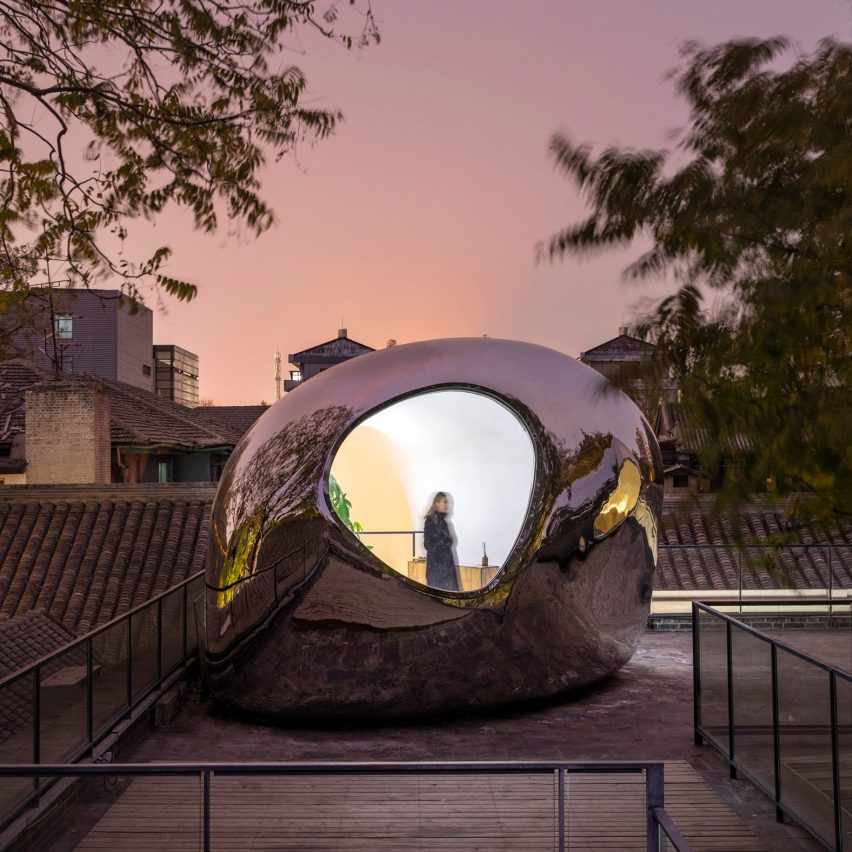
From bubble-like workspaces in an ancient Chinese hutong to an art installation in the Swiss mountains, we've rounded up 10 of the best mirrored buildings from Dezeen's archive.
Hutong Bubble 218, China, by MAD
While renovating a courtyard house in one of Beijing's historic hutongs, MAD added two curved workspaces to the roof that are enclosed by smooth, mirrored stainless steel.
The studio's aim was to introduce a contemporary aesthetic to the site without "interrupting the existing urban fabric", so reflective steel cladding was chosen to help the new structures blend in with it.
Find out more about Hutong Bubble 218 ›
Maggie's Southampton, UK, by AL_A
Polished stainless steel cladding with a hammered surface wraps around portions of Maggie's Southampton, a cancer care centre designed by AL_A to camouflage within the surrounding gardens.
The distortions in the surfaces create impressionistic reflections of the planting while also preventing the optical illusion of continued space, stopping birds from colliding with the structure.
Find out more about Maggie's Southampton ›
Mountain and Cloud Cabins, China, by Wiki World and Advanced Architecture Lab
This pointed spaceship-like cabin is one of 18 dwellings that Chinese architecture studios Wiki World and Advanced Architecture Lab designed for a hotel scattered on a mountainside in Yichang.
They are all built from cross-laminated timber in various shapes and sizes, and were finished with reflective cladding to help them reflect the verdant mountainscape.
Find out more about Mountain and Cloud Cabins ›
Mirage, Switzerland, by Doug Aitken
American artist Doug Aitken used mirrors to cover almost every surface of the Mirage house – an art installation in the Swiss mountains. This includes the interiors of the structure, which creates a kaleidoscopic viewing effect for visitors.
The structure is modelled on the Californian ranch houses developed in the 1920s and 1930s. To protect birds from colliding with the house, horizontal black lines are installed every three centimetres on the facade to counter the distraction of the reflective surfaces.
Depot Boijmans Van Beuningen, Netherlands, by MVRDV
Over 1,500 curving mirrors enshroud the Depot Boijmans Van Beuningen, the world's "first publicly accessible art depot" that MVRDV recently completed in Rotterdam.
The idea behind the cladding was to help the building become "fully integrated into its surroundings" by reflecting passersby, changing weather and the surrounding city skyline.
Find out more about Depot Boijmans Van Beuningen ›
Invisible House, USA, by Tomas Osinsk and Chris Hanley
This long steel-framed dwelling near Joshua Tree National Park is clad in a mirrored, tempered glass that is typically used for skyscrapers. It is elevated above the ground on concrete columns, forming a cantilever at one end.
From the inside, the glass walls provide panoramic views of the surroundings to be enjoyed from a 30-metre-long indoor swimming pool that runs through the dwelling.
Find out more about Invisible House ›
La Madriguera, Spain, by Delavegacanolasso
Mirrored sheets of methacrylate – a type of thermoplastic – envelop this residential extension in Madrid and take on the green tones of the surrounding leafy foliage.
The extension was designed by architecture practice Delavegacanolasso to be almost indistinguishable within its setting. Its only noticeable element is a large porthole in its front elevation.
Find out more about La Madriguera ›
Casa Etérea, Mexico, by Prashant Ashoka
Casa Etérea is a holiday home hidden on the slopes of an extinct volcano in Mexico. Its main facade is covered in mirrors and it relies on solar power and harvested rainwater to function.
It was designed by Prashant Ashoka to act as an extension of the environment by reflecting changing light and seasons. However, a patterned, ultraviolet coating makes the structure visible to passing birds while remaining invisible to humans.
Find out more about Casa Etérea ›
Cowes, Belgium, by TOOP Architectuur
Cowes is one of two mobile studios that TOOP Architectuur built for itself in Belgium from repurposed shipping containers.
Located in Westouter, it is covered almost entirely in mirrors excluding two large glazed openings. According to the studio, this is intended to reduce the office's visual impact and let the "landscape speak at its maximum".
The Woodland House, USA, by Altus Architecture + Design
In a wooded site in Minnesota, Altus Architecture + Design built a mirrored shed alongside a low-lying house clad in cedar.
The shed is covered in folded panels of polished stainless steel and is described by the studio as a "counterpoint to the house that dissolves into the woods".
Find out more about The Woodland House ›
The post Ten mirror-covered buildings that reflect their surroundings appeared first on Dezeen.
from Dezeen https://ift.tt/2T31D5I
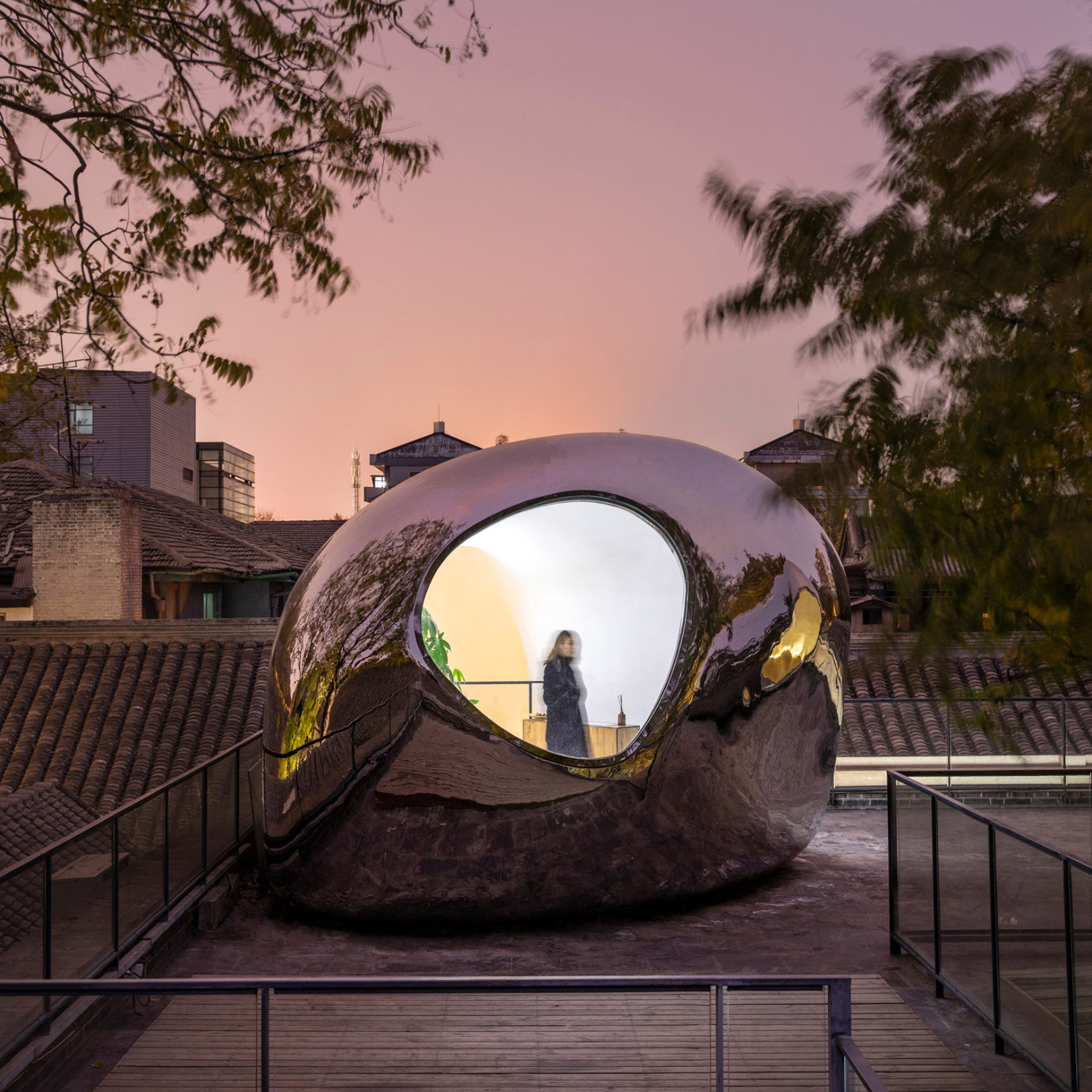
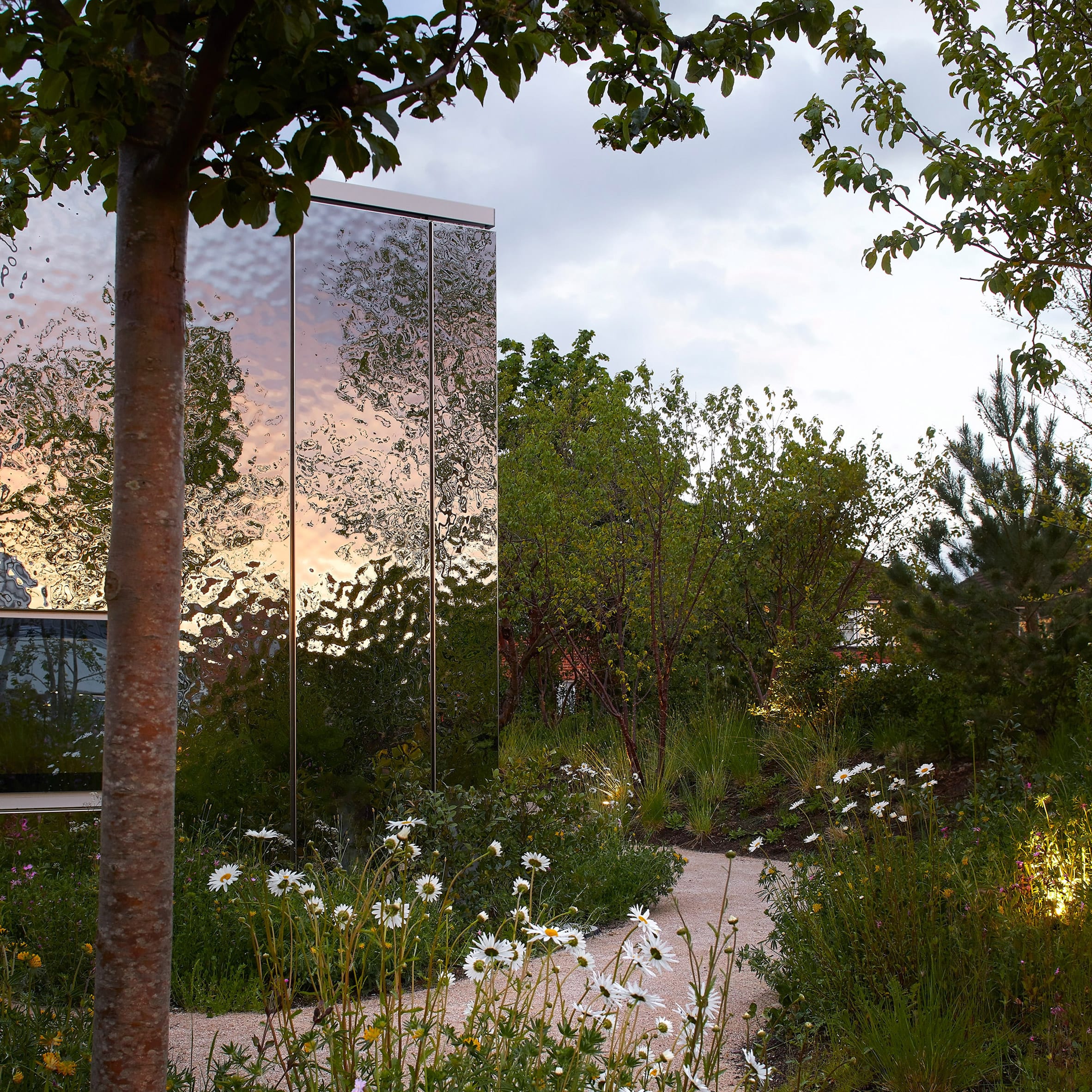
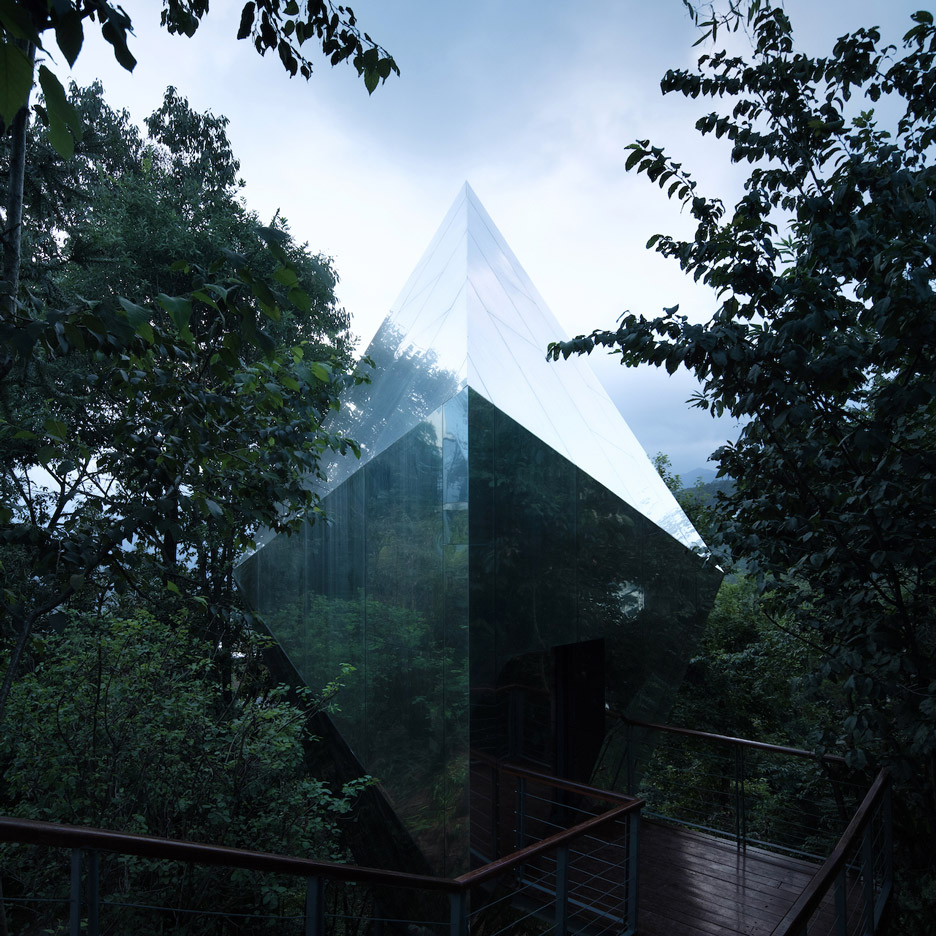
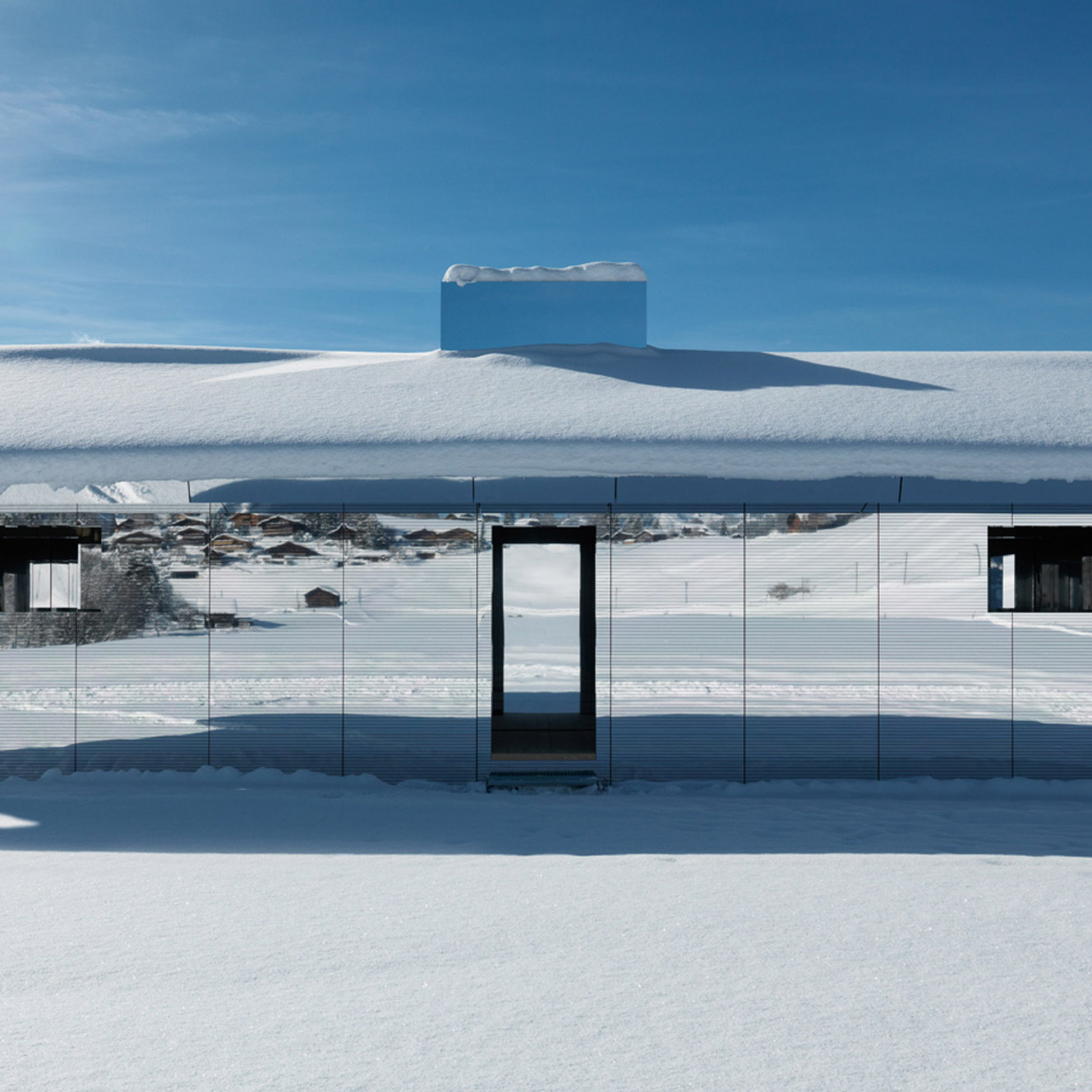
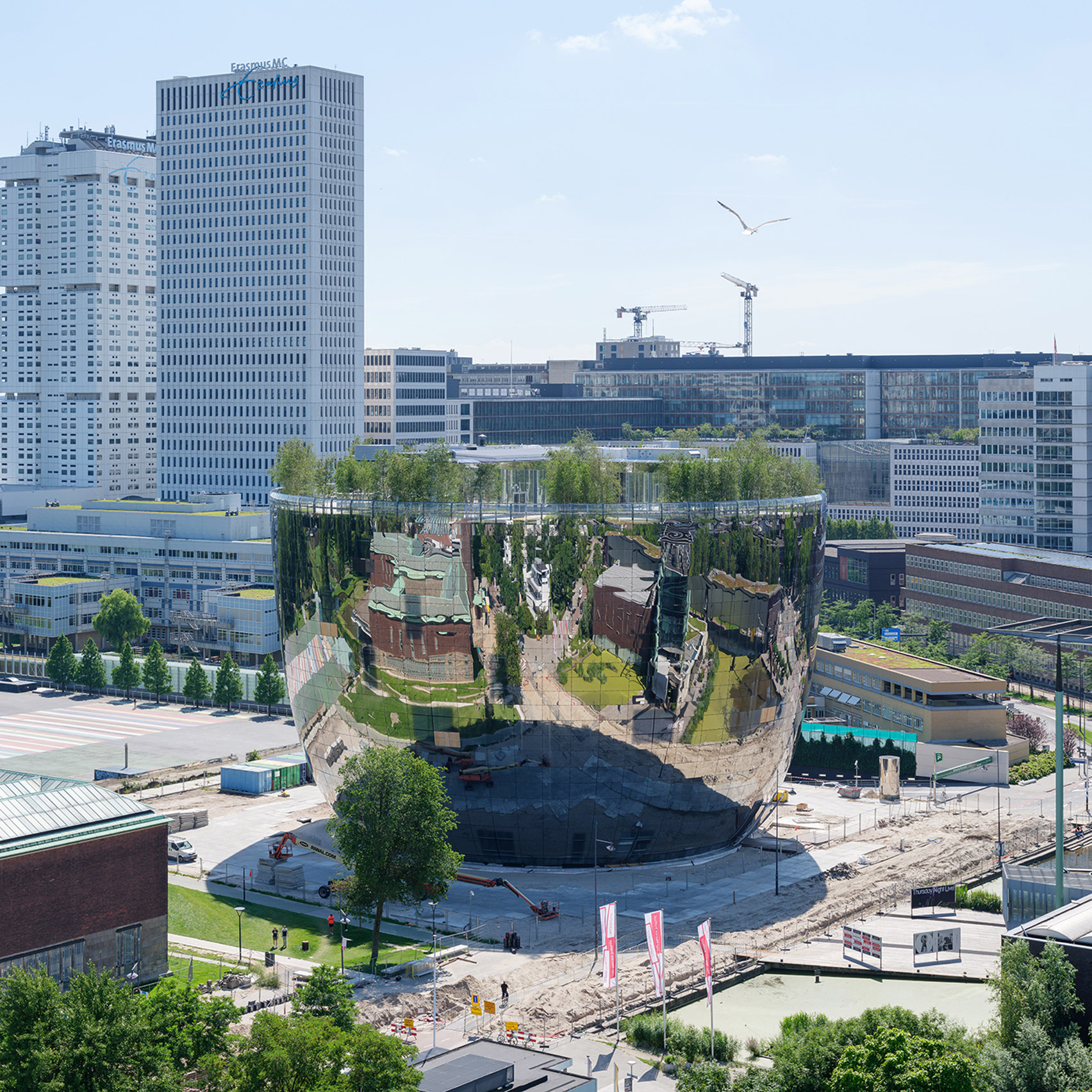
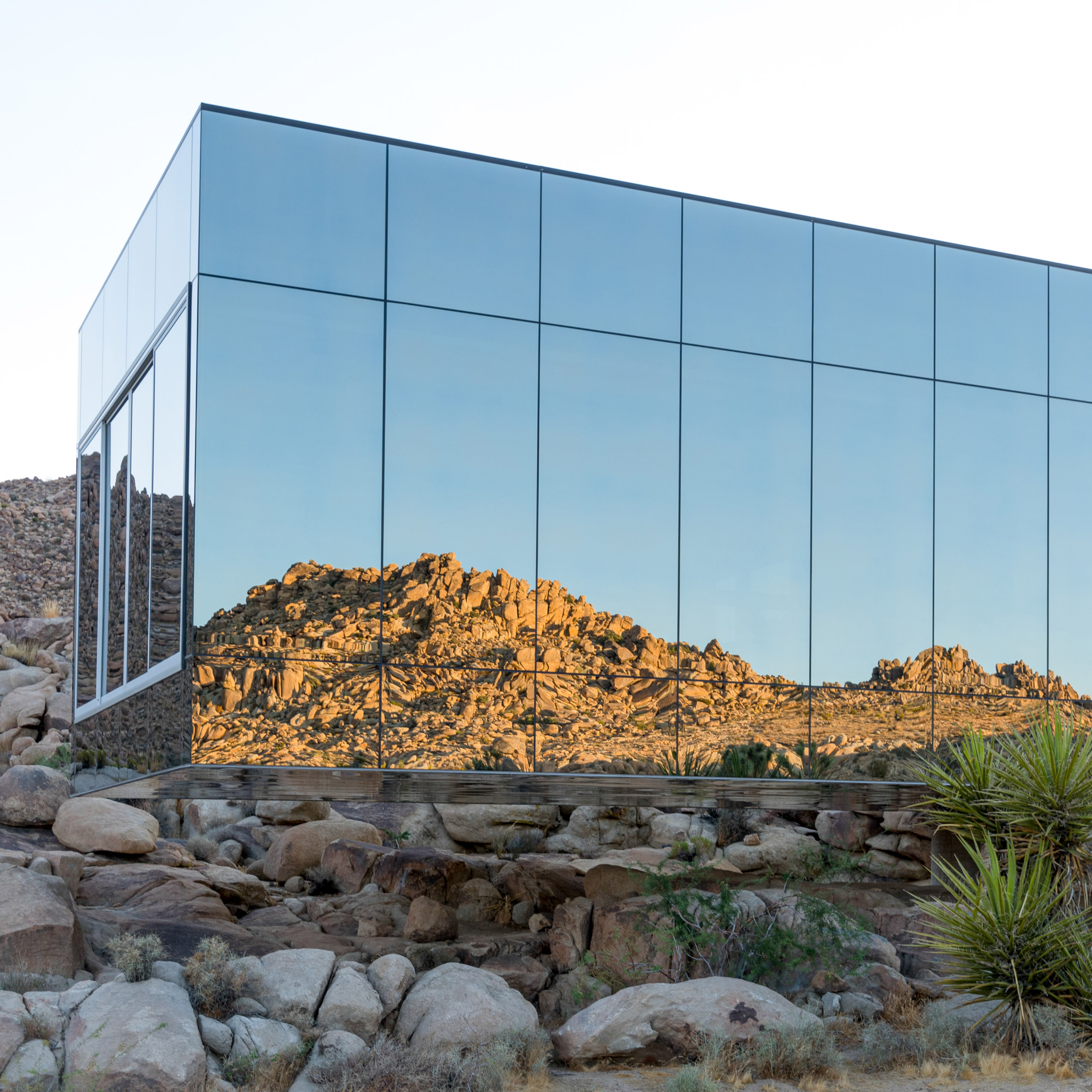
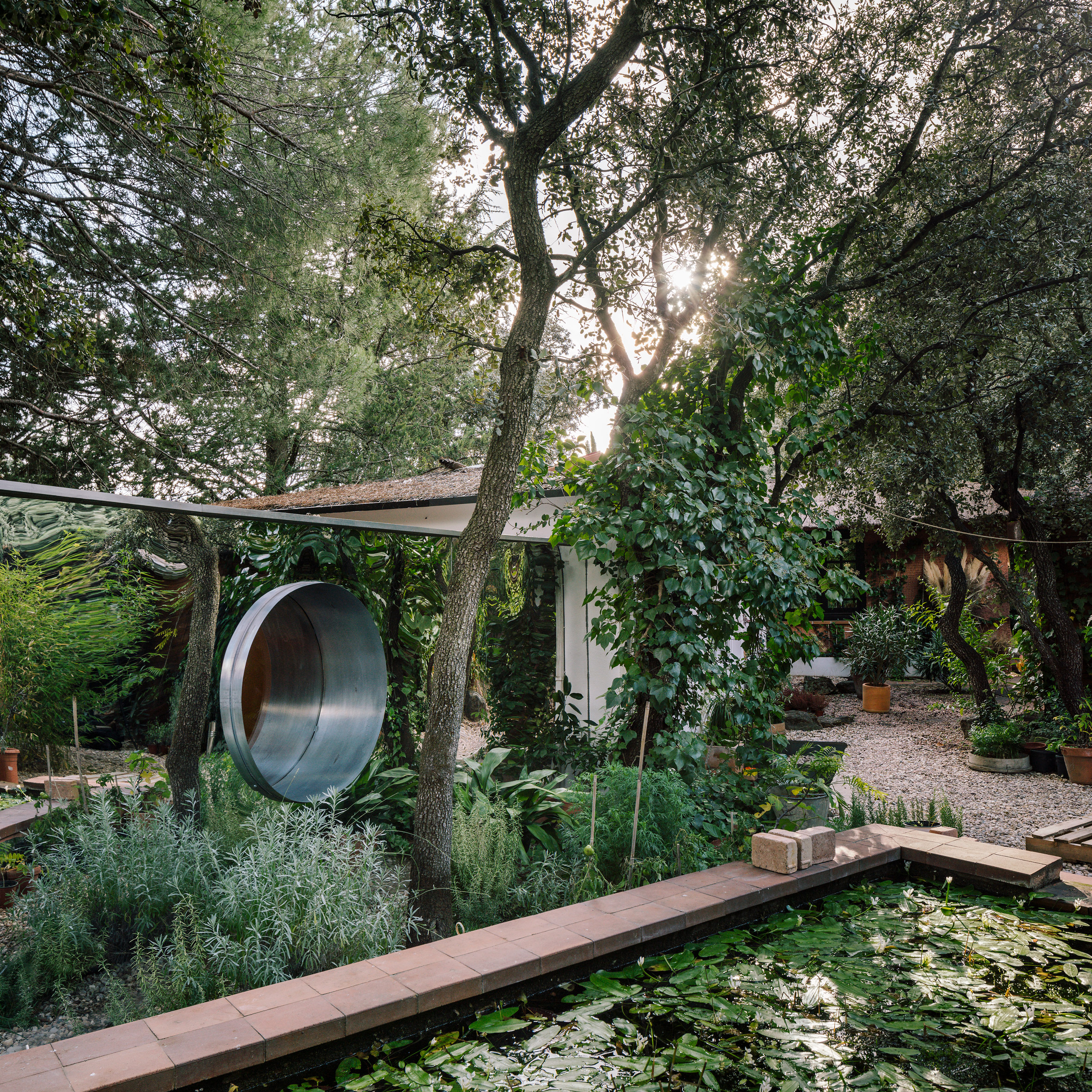
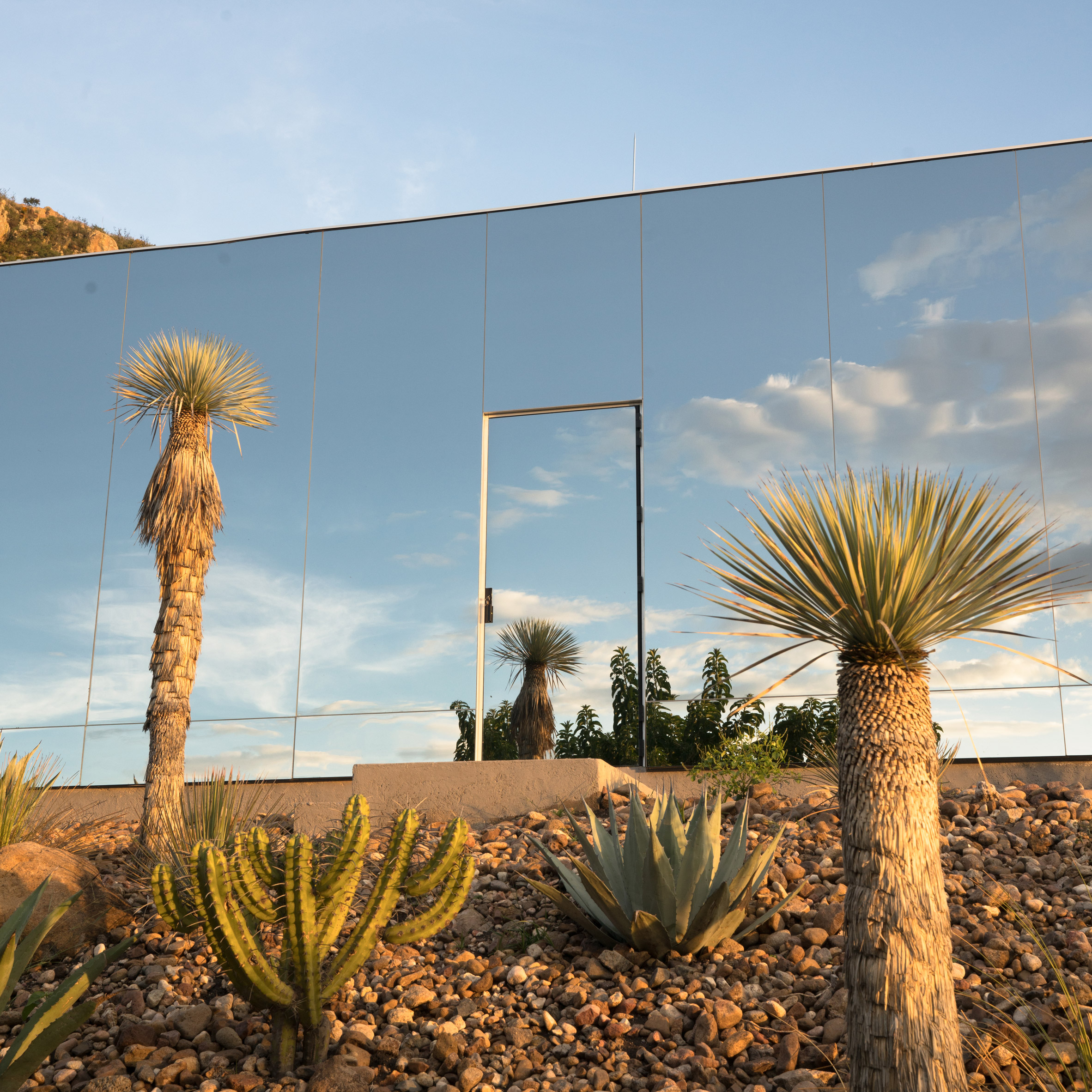
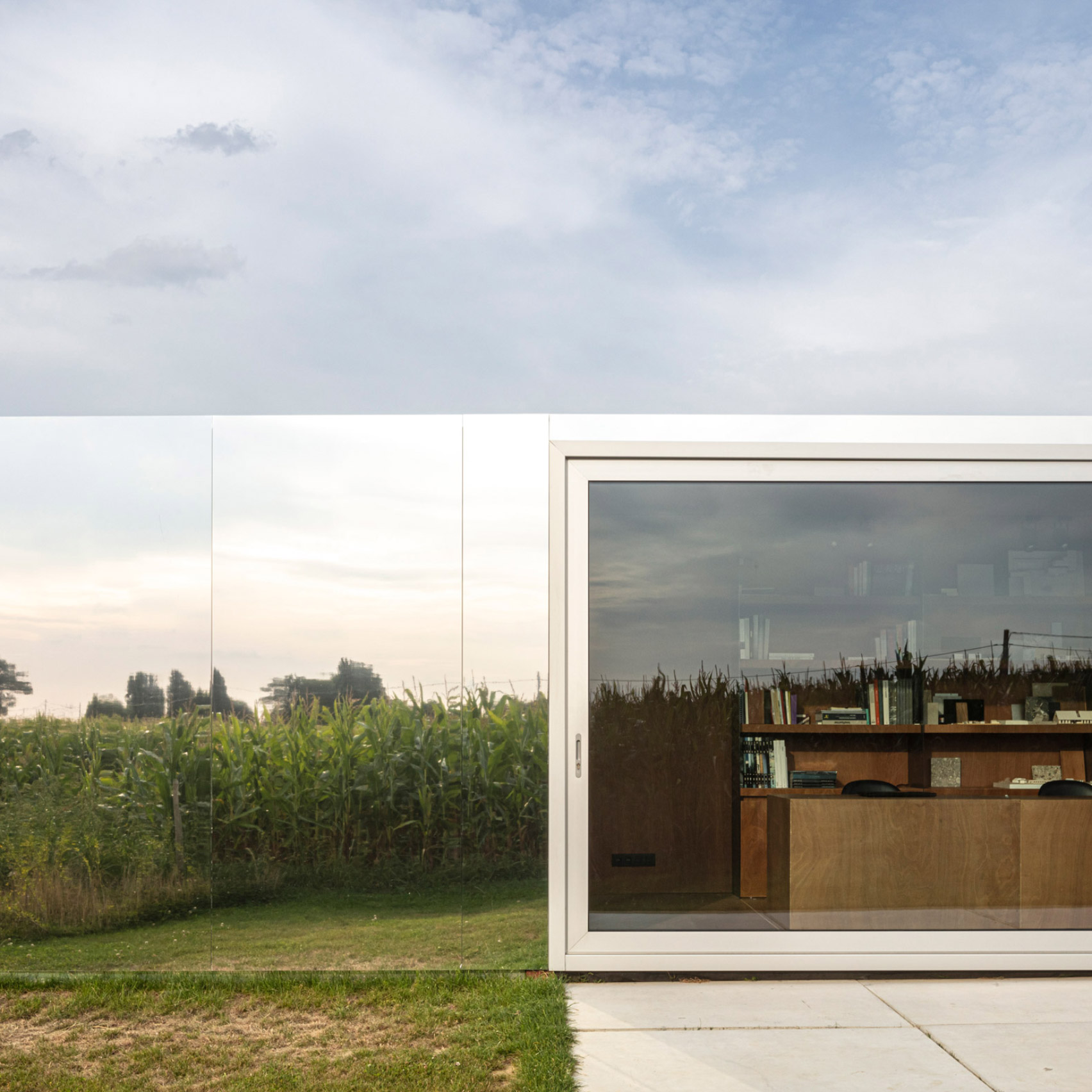
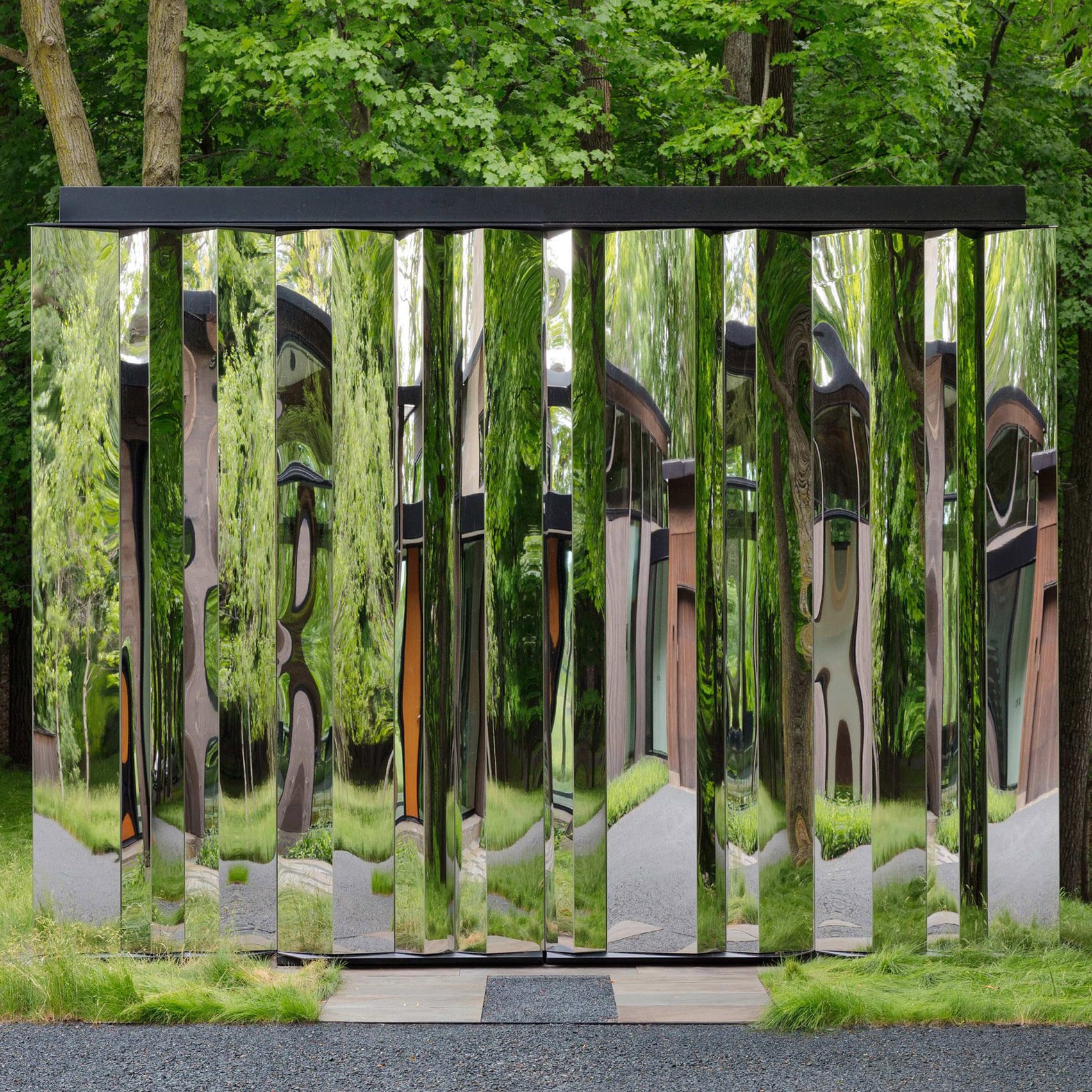
No comments:
Post a Comment